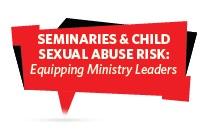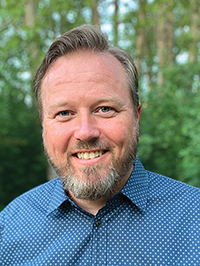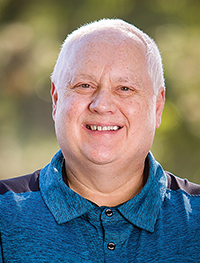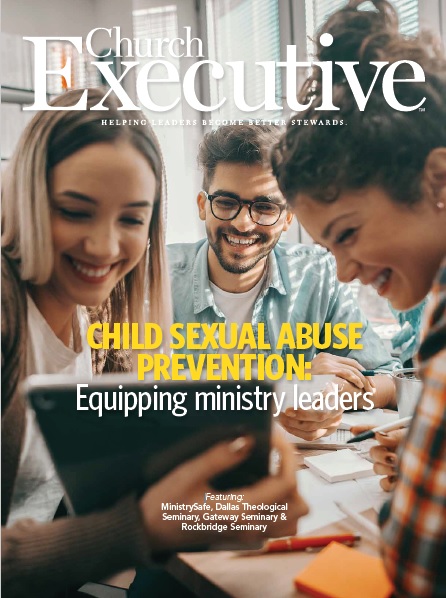
How Rockbridge Seminary became a leader in sexual abuse awareness training for pastors and ministry leaders
Rockbridge‘s foundation blends an unwavering commitment to the word of God while emphasizing the practical aspects of training for ministry.
A testament to this commitment is our requirement that all students complete sexual abuse awareness training, which we first implemented in 2018.

President
Rockbridge Seminary
Here, we train ministry leaders to be shepherds of their congregations — to care for and love their sheep. That means protecting the flock from dangers both outside and inside the fence.
This commitment, plus a rise of sexual abuse cases being reported within faith communities, made clear the need to specifically address this risk with our students. A mandate emerged: help students create safe, zero-tolerance ministry environments.
But this was only part of our call; we knew we must also train them on what to do when confronted with sexual abuse. In these situations, church leaders run the risk of making wrong choices, such as hiding the incident or trying to navigate it on their own. Many don’t do what’s required of them as state-mandated reporters, which — aside from the undeniable human toll — creates potentially catastrophic legal issues.
A standard-setting resource emerges
With our hearts and minds devoted to sexual abuse awareness training, we began to consider how we would shape our curriculum.

VP for Academic Services
Rockbridge Seminary
That’s when we came across MinistrySafe.
After meeting with Co-Founder Gregory Love and his team, our Executive team decided to do the MinistrySafe training ourselves; we found it to be clear, precise and concise.
Having personally learned so much about the signs of sexual abuse — especially the jarring realization that they can so easily be missed — we made MinistrySafe available to students, as well as graduates, faculty and Board members. We’re even able to provide this training at no charge, thanks to generous alumni.
In practice, our mandatory “Sexual Abuse Awareness” module takes about an hour to complete and is fully online. We’ve made this training an assignment in a required core ministry course at each program level, so we know which students have completed the training and which students still need to. Participants receive a downloadable certificate of completion, which they upload as the assignment.
As students learn, so do we
In introducing sexual abuse awareness training, we’ve identified some common “gaps” in students’ knowledge base on the topic, especially regarding grooming behaviors and signs of abuse. Like us, they’re particularly shocked at how easy these signs are to miss.

Yet, while recognizing these signs is crucial to preventing and intervening in sexual abuse, even the best intentions and training sadly can’t prevent every incident. Because abuse so often takes place outside of the church, our students must be prepared to care for victims. They need training on how to best comfort, support and walk alongside all those who are hurting.
Interestingly, as we’ve required MinistrySafe training, we’ve discovered many of our students have already taken it through their own churches. Their positive experiences underscore that adding it to our curriculum was the right choice.
And for students who haven’t already done so, we encourage them to introduce MinistrySafe training in their churches. Let’s be honest: everyone is on their best behavior when the pastor is on hand, including offenders. So, it’s often an associate pastor, executive pastor or ministry leader who first recognizes the signs of sexual abuse. For this reason, we encourage staff-wide training.
Navigating the challenge in a COVID world
If recognizing the signs of grooming or sexual abuse is difficult in normal times, it’s an even bigger challenge during COVID-19, as people of all ages enjoy fellowship online. Lockdowns prevent more direct observation of the (already easy-to-miss) signs of ongoing sexual abuse.
Even outside a pandemic, social media is an ideal place for offenders to groom potential victims. Using platforms like Snapchat and others, offenders encounter zero tracking-related risks or activity logs to hold them accountable unless screenshots are taken in the moment, which is unlikely.
For all these reasons, we need training on how to spot the signs of sexual abuse in social media and video conferencing. What should we be watching for?
Intentional design
Our students love that our seminary is theologically strong, but the distinguishing characteristic of Rockbridge is our focus on practical training. One of our values is to be innovative and relevant in order to stay on the cutting edge of what’s happening in our culture. Some of the ways we adhere to this value is the intentional design of our curriculum and our professors work in ministry themselves. Our requirement that students receive the best, most up-to-date sexual abuse awareness training available — and providing it to them for free — really demonstrates this commitment.


